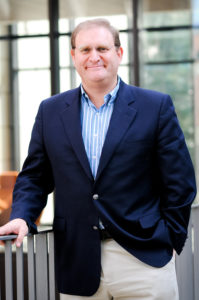Presidential Commission Releases Election Recommendations and Report Based on Research Directed by SLS Professor Nathaniel Persily

Stanford, Calif., January 22, 2014—The Presidential Commission on Election Administration has issued a report containing a frank assessment of electoral problems in the United States and recommending significant electoral reforms, the White House announced today. Nathaniel Persily, JD ’98, the James B. McClatchy Professor of Law at SLS, serves as Senior Research Director of the Commission. The Commission also has two co-chairs: Benjamin Ginsberg, a visiting lecturer at SLS and former national counsel to Governor Mitt Romney’s presidential campaigns, and Robert Bauer, former general counsel to President Barack Obama’s presidential campaigns. The report is entitled “The American Voting Experience: Report and Recommendations of the Presidential Commission on Election Administration.”
“Our aim was to transcend partisan divisions and view election administration as public administration that must heed the expressed interests and expectations of voters,” said Bauer and Ginsberg.
The bipartisan, 10-member Commission was formed last March to help identify best practices in election administration and promote the efficient administration of elections. The Commission was especially determined to ensure that eligible voters can cast their ballots without undue delay and to improve the experience of voters who face other obstacles in casting their ballots, such as members of the military and people with disabilities or limited English proficiency. In conducting its work, the Commission held public meetings and hearings and consulted election officials and voting rights experts nationwide.
Some of the report’s key recommendations are as follows:
- Modernization of the registration process through continued expansion of online voter registration and expanded state collaboration in improving the accuracy of voter lists,
- Measures to improve access to the polls through expansion of the period for voting before the traditional Election Day, and through the selection of suitable, well-equipped polling place facilities, such as schools,
- State-of-the-art techniques to assure efficient management of polling places, including tools the Commission is publicizing and recommending for the efficient allocation of polling place resources, and
- Reforms of the standard-setting and certification process for new voting technology to address soon-to-be antiquated voting machines and to encourage innovation and the adoption of widely available off-the-shelf technologies.
“The Commission took on a very difficult problem and did not pull punches in its recommendations,” said Persily. “Problems in recent elections, such as long lines at the polling place, affect millions of voters, and impending challenges, such as the specter of widespread breakdown of aging voting machines, require a concerted effort to ensure American democracy meets voters’ expectations.”
Persily is an award-winning teacher and nationally-recognized constitutional law expert who focuses on the law of democracy, addressing issues such as voting rights, political parties, campaign finance and redistricting. He is a highly sought-after nonpartisan voice in voting rights and has served as a special master for congressional redistricting efforts in Connecticut and as a court-appointed nonpartisan expert for legislative districting plans in Georgia, Maryland and New York.
Persily has also published dozens of articles in both scholarly publications and popular media about the legal regulations of political parties, issues surrounding the census and redistricting process, voting rights and campaign finance reform. He is currently editing a volume on Solutions to Political Polarization, which will be published in the Fall.
Before joining SLS’ faculty last July, Persily was the Charles Keller Beekman Professor of Law and Professor of Political Science at Columbia Law School, where he also founded and directed the Center for Law and Politics. Persily was recently elected to the prestigious American Law Institute.
Persily and Ginsberg are teaching a class in the Winter quarter about the legal regulation of elections and politics. Ginsberg has represented multiple political campaigns and candidates, as well as elected officials, political parties and individuals participating in the political process. He also has extensive experience in redistricting at the state legislative level.
The report and related online tools are available now. Additional information can be found at the Commission’s website.
About Stanford Law School
Stanford Law School is one of the nation’s leading institutions for legal scholarship and education. Its alumni are among the most influential decision makers in law, politics, business, and high technology. Faculty members argue before the Supreme Court, testify before Congress, produce outstanding legal scholarship and empirical analysis, and contribute regularly to the nation’s press as legal and policy experts. Stanford Law School has established a new model for legal education that provides rigorous interdisciplinary training, hands-on experience, global perspective, and focus on public service, spearheading a movement for change.
